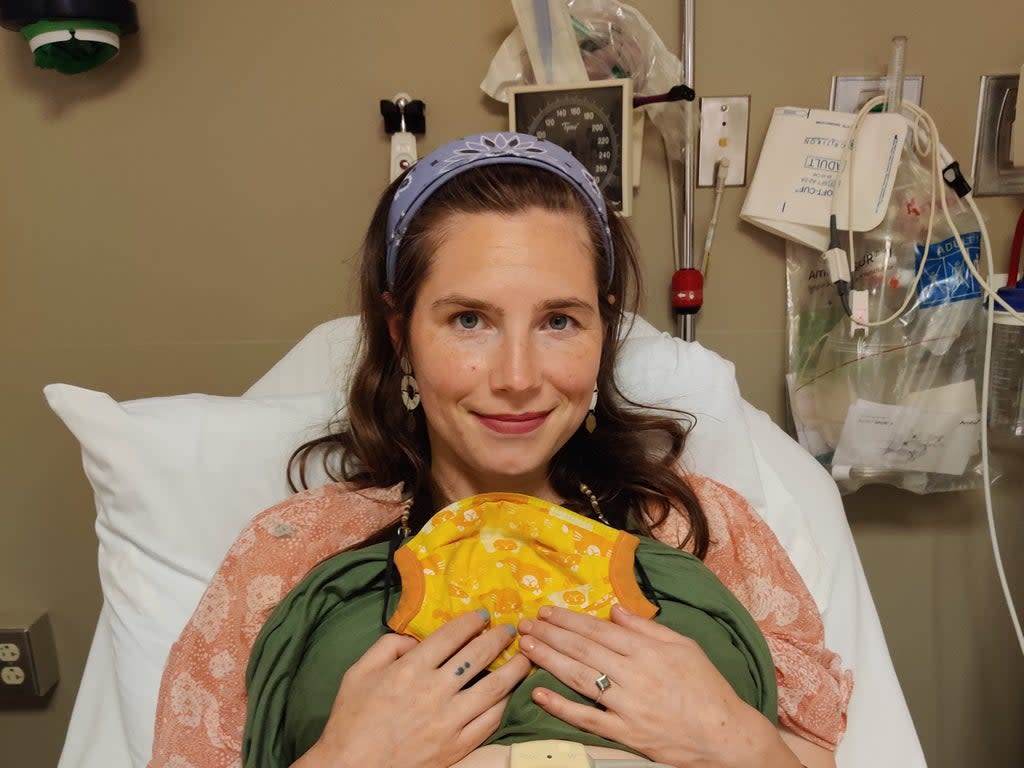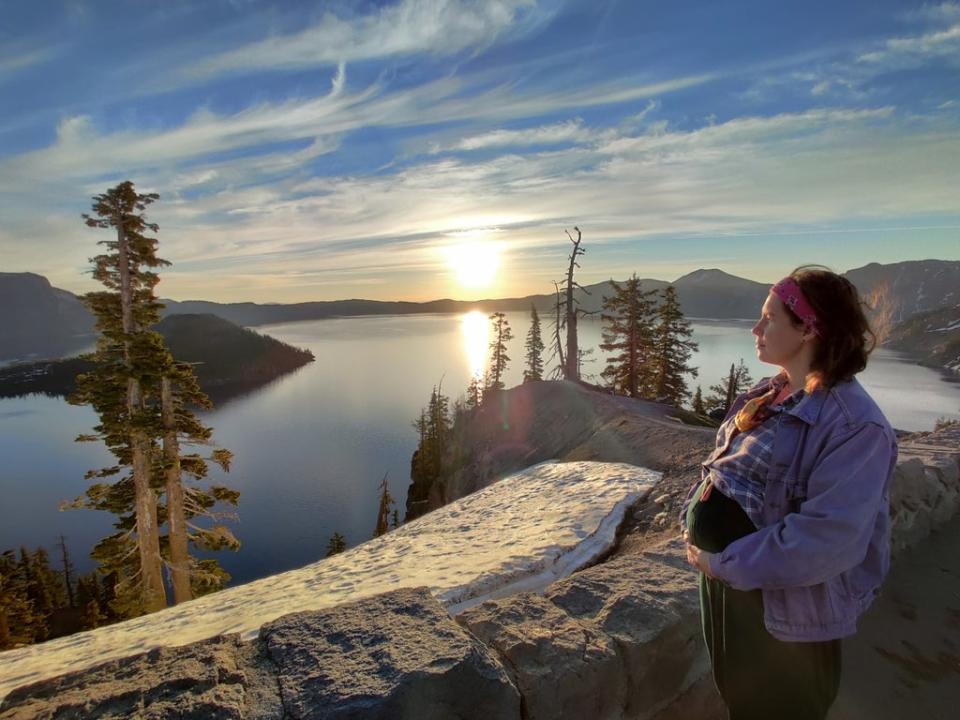This is how I’ll tell my daughter my life story – by Amanda Knox

I don’t look forward to the day my daughter, Eureka, first declares: “It’s not fair.” On that day, she will have achieved a level of moral sophistication that opens her up to a new kind of suffering previously unknown to her, a kind of suffering our society doesn’t have good answers for: “Why do bad things happen to good people, and what do we do about that?”
That day is a long way off. Right now, she can barely make eye contact. But when she looks up at me, her shocking blue eyes so like my own, I worry about the world she will grow into and how it will treat her – for it hasn’t always been kind to me.
I wonder how I will explain it all: Italy, tragedy, prison, injustice. I wonder how my own mother felt, looking at me when I had this same innocent face, the kind of innocence you don’t have to fight tooth and nail to prove.
When I was a kid, my mom used to tell me, when something went wrong: “Life isn’t fair.” And if I was feeling down: “Just smile.” Neither of us could have imagined how unfair life could be, or that a smile – like the one I shot across the courtroom to my mom who I wasn’t allowed to speak to – could be twisted into evidence of guilt.
My mom had given me such a happy childhood, a childhood so free of pain, that a few weeks into my imprisonment – after screaming repeatedly in the quiet of my own mind: “Why, why is this happening to me!” – I thought, is this my balance coming due? After all, “life isn’t fair”.
Did suffering forget me for decades – and was it now making up for lost time by subjecting me to 20 years’ worth of pain in a matter of weeks? This thought came long before I was convicted and sentenced to 26 years in prison.
I want my daughter to understand that yes, life isn’t fair, but also, that no one deserves that kind of suffering – or the suffering Rudy Guede inflicted on Meredith Kercher and her family.
That we all deserve compassion. That’s something my mom taught me that helped me survive prison, and helped me to see the humanity in my fellow inmates. She told me from as early as I can remember, that of all the things she could possibly hope for me, she hoped I would be kind; not just to those who were nice to me, but even to those who hurt me – to be kind even when life wasn’t fair.

I imagine that when my mom looked at her infant daughter, at me, drooling and laughing, she thought something similar to what I’m thinking now: “I will always be there for you.” But then she was put to the test in a way no mother ever should be.
When I was snatched away from her, she would have traded places with me in a heartbeat. She couldn’t have known 20 years prior, when she was a young mom – as I am now – what that commitment meant. Having seen her example, I know. I know what it means to say: “I will always be there, I will sacrifice everything for you.”
How will Eureka learn about the injustice I’ve suffered? How will she come to understand that many people irrationally hate her mother because they swallowed a tabloid fiction? I’m not exactly sure, but I do know that from a young age she will know that her mom belongs to a special tribe: the wrongfully convicted.
This coming April, I’ll be bringing her to her first ever Innocence Network Conference, where she will meet my exoneree family, who are mostly black and brown men who were locked away for far more years than I. She will grow up surrounded by those who’ve suffered unspeakable injustice, and those who devote their lives to advocating against it.
Before she knows to ask what a wrongful conviction is, she will have danced with the wrongly accused – and beamed her youthful curiosity towards false confessions experts and DNA scientists.
Our conversations will evolve as she ages. The way I’ll talk about injustice and prison and tragedy will be very different when she’s six, compared to when she’s 20, and heading off on her first solo trip abroad. And, yes, I will want her to have that experience: to immerse herself in a foreign culture, learn a new language, to experience the terror and the exhilaration of being on her own.
But one thing I’ll make sure she knows, that I didn’t: you can still be a big girl and need your mom. If you’re ever in trouble, call your mom! Ask for help!
What I worry most is that she will live in the shadow of my wrongful conviction. That those who objectified me will objectify her. I want her to know that she is not equivalent to how people perceive her, for good or bad. I want her to know that I will do everything in my power to keep her safe – but that there is no guarantee in life that she will be.
Life wasn’t fair to me, and it especially wasn’t fair to Meredith. And the truth is that because of the violence exacted against women and girls every day, my daughter is far more at risk of suffering Meredith’s fate – being the victim of a violent sex crime – than of being wrongfully convicted of murder, as I was; an exceedingly rare injustice to befall a woman.
To keep up to speed with all the latest opinions and comment sign up to our free weekly Voices Dispatches newsletter by clicking here
As I enter into motherhood, I think also of Meredith’s mother, and how devastated I would be if my own daughter was snatched away not just for four years, but forever.
Somehow, someday, I will have to convey all these complicated and difficult emotions to my daughter. My greatest hope for her is that she feels hope in spite of my deep fear for her, fear shaped by my own trauma – and the trauma that was wrongly pinned on me.
I hope that however injustice and suffering manifests in my daughter’s life – and it will, it does for all of us – I hope that she will see it coming, I hope she will not have to fight for her freedom, but that it will be as natural as air.
And as my own mother hoped for me: I hope she is kind, especially when life is unfair.
Read More
Opinion: Indigenous peoples are the best stewards of our environment
Top 10 bizarre things that things are named after
‘Digital detoxes’ don’t work – but I’ve found something that does | Mark Watson
Opinion: Indigenous peoples are the best stewards of our environment
Top 10 bizarre things that things are named after
‘Digital detoxes’ don’t work – but I’ve found something that does | Mark Watson

 Yahoo News
Yahoo News 
